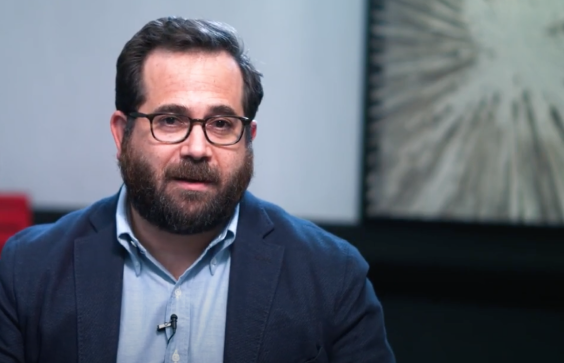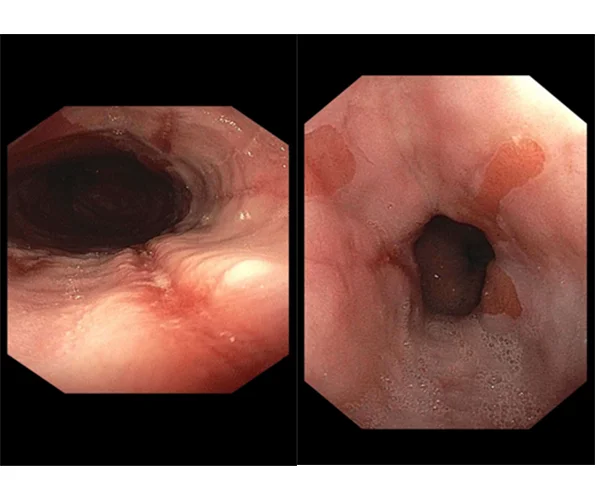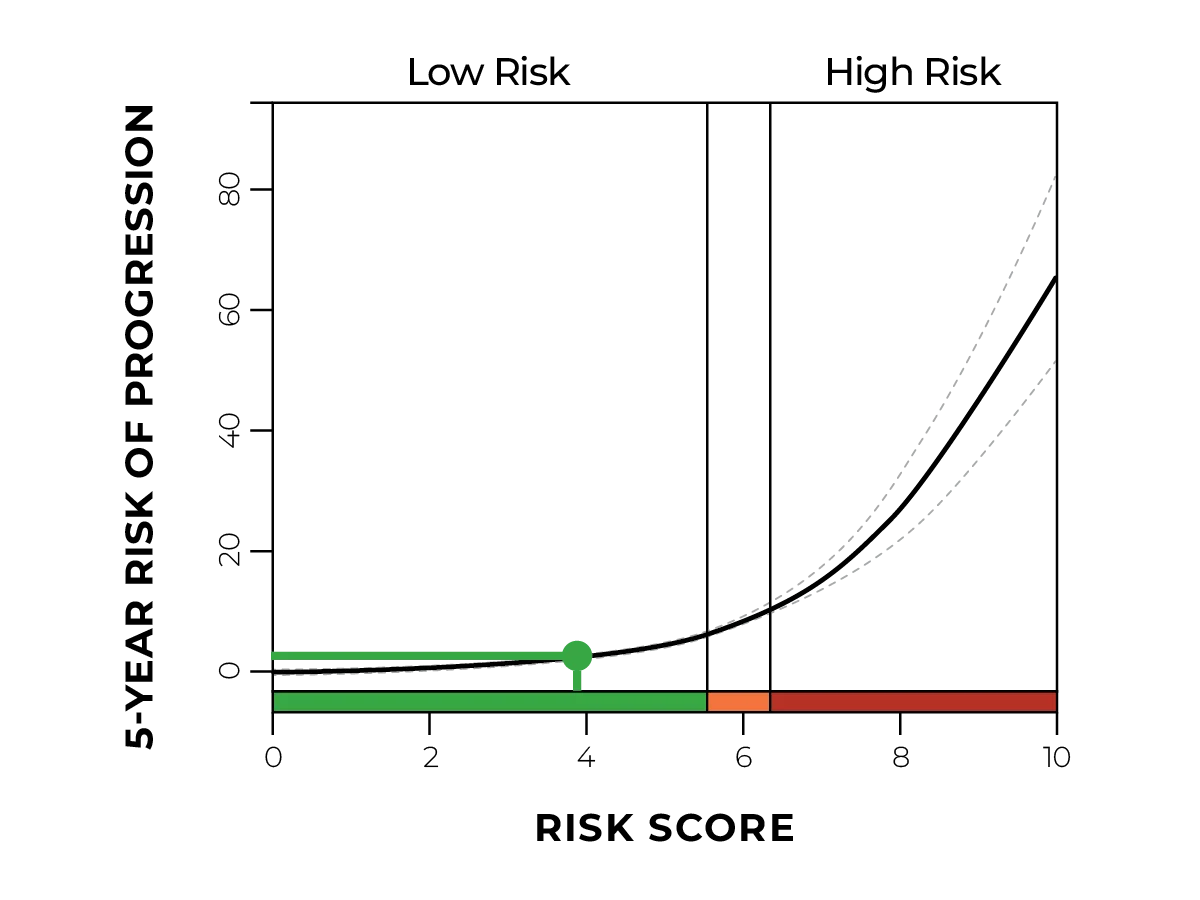
A 38-year-old male with long-segment Barrett’s esophagus and a low-risk TissueCypher emphasized the need to consider all the factors of the case.
“So to me, all those [clinical factors] point to a little bit higher risk. But then we combine that with the TissueCypher results of lower risk, and I think, here, we meet in the middle.”
See the case details below.
Case details

- No relevant family history
- Mild obseity (BMI 33)
- Chronic GERD for 20 years
- PPI use - 20 years
- Non-smoker

- Non-dysplastic Barrett's since 2007
- Laparoscopic Nissen 2014





















